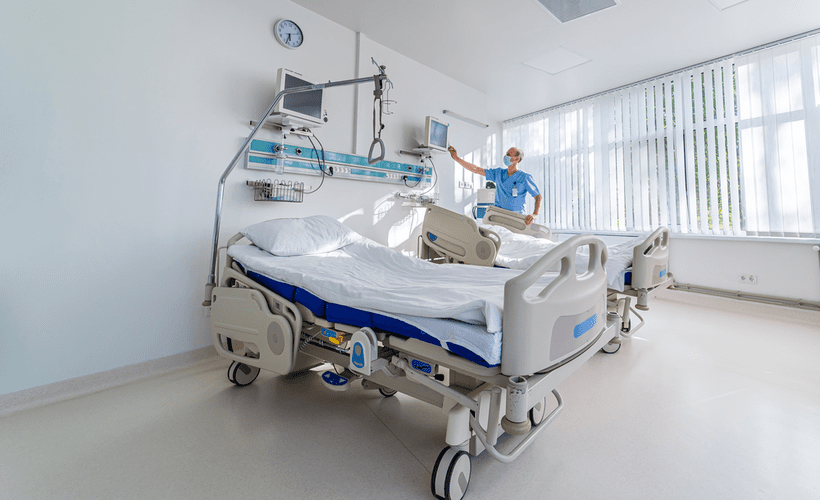Alcohol Addiction Treatment Center Alcohol Rehab Program
Content
You will be able to receive advice and get to express your feelings — both the good and the bad. There are often recovery groups that offer safe spaces for people of certain genders, ages, and cultural backgrounds. Some rehab centers offer LGBTQ+ groups or groups for those who have been previously incarcerated. You’ll work with a mental health professional in one-on-one sessions.
- Many people transition from detox to inpatient or residential treatment, to outpatient treatment, and then to a sober living environment.
- Our entire staff works to ensure that our residents remain as comfortable as possible during the detox process.
- This enables them to make real-time treatment adjustments, measure your progress over time, and keep you moving in a positive direction.
- Medicare Part B covers opioid use disorder treatment received at opioid treatment programs.
- Your therapist will also help you identify your addicition triggers.
- Depending on the severity of your addiction, it may take some time to recover.
Addiction is complex, different for each person, and requires unique treatment paths. By getting to the root, we are able to effectively treat the issues. Our evidence-based treatment strategies are designed to treat this specific type of illness, very much as you would expect to have any illness treated. With the help and support of our team, you can find your feet again, along with hope and optimism for the future. We begin your treatment with an in-depth analysis and clinical diagnosis of any underlying mental illness that may have caused or exacerbated your dependence on alcohol. You will have constant access to our licensed clinicians and your entire treatment team. This high level of focus allows you to progress more quickly and develop the skills that will help you return to sobriety and face a future with less chance for relapse.
Hospital Treatment
Content is reviewed before publication and upon substantial updates. After deciding between inpatient or outpatient, you’ll choose between a local rehab center or traveling for a program.

When your loved one comes to Alta Mira, they will finally have a chance to be free from the debilitating effects of addiction. Alcoholism, also known as alcohol use disorder, is an addiction to alcohol or a pattern of misuse of alcohol that is problematic. There are no specific tests for alcoholism, but there are certain health patterns in lab test results that can suggest alcohol damage has occurred in a person’s organs.
Intensive Outpatient Programs
Based on highly individualized treatment planning, our comprehensive continuum of care incorporates medical and emotional recovery, as well as, traditional approaches to treatment. All recovery services are provided under the care of psychiatrists who specialize in chemical abuse and dependency. Alcohol is one of the most abused substances in the U.S. today, and no wonder; it is socially acceptable and often encouraged. We see advertisements for beer, wine, and hard liquor on TV and in the movies, and it is widely available in grocery stores, sports arenas, and restaurants. Although socially accepted, alcohol use can quickly turn into addiction or dependence, leading to severe, sometimes fatal consequences. In such cases, it is critical to find an alcohol addiction treatment program in California.
Treatment Approaches for Drug Addiction DrugFacts National Institute on Drug Abuse – National Institute on Drug Abuse
Treatment Approaches for Drug Addiction DrugFacts National Institute on Drug Abuse.
Posted: Thu, 17 Jan 2019 08:00:00 GMT [source]
Another common co-occurring issue with alcoholism is the abuse of other substances. People who misuse alcohol also may misuse illicit or prescription drugs for similar reasons. This can be very dangerous, though, as certain combinations of alcohol and drugs can increase physical health problems and even increase the risk of overdose. For example, mixing alcohol with other depressants, like benzodiazepines or opioids, is dangerous because of the additive effects. While there are no medications that will instantly and completely resolve the withdrawal symptoms of alcohol, some medications may be used to manage individual symptoms. Craving-management medications, such as Vivitrol®, may also be used to help in your recovery. A doctor will monitor your condition and help you cope with symptoms in a compassionate, caring environment.
Treatment for Alcohol Withdrawal
It’s frightening to think about going through withdrawal, our medically supervised detox can help you manage the symptoms of withdrawal. As you stabilize during our 30 Day Detox, Stabilization, and Assessment period, you will physically and mentally be preparing yourself for the next phase of your recovery transformation. Group therapy is the primary form of treatment for substance use disorder and is used extensively in our residential program. However, individual therapy is available to patients on an “as needed” basis during the treatment period.
There are specific therapies that treat the root cause of addiction – such as anxiety, depression, trauma, and chronic pain. Confronting these issues in conjunction with optimizing behavioral skills ultimately leads to longer sobriety. Some rehabs offer specific dual diagnosis programs to treat both diagnoses simultaneously. When you don’t drink, you develop withdrawal symptoms, which don’t go away until you consume more alcohol. However, certain food groups also have benefits when it comes to helping with the discomfort of withdrawal symptoms and detoxification.
Starting With a Primary Care Doctor
You’ll have dinner, and perhaps end the day with another group session to reflect on your progress so far and how you feel about all you experienced throughout the day. Many rehab centers typically have a set time for “lights out,” when free time is done for the day and you’re encouraged to get to sleep. Self-medicating with substances, like drinking or taking drugs to treat underlying symptoms of anxiety or depression, is another reason to consider rehab. Once you recognize that you need Alcoholism Treatment Program some help with an addiction, you will probably consider other options before entering a formal rehab program. Peer support groups, including 12-step groups like Alcoholics Anonymous or Narcotics Anonymous as well as SMART Recovery or Celebrate Recovery may be right for you. Verywell Mind articles are reviewed by board-certified physicians and mental healthcare professionals. Medical Reviewers confirm the content is thorough and accurate, reflecting the latest evidence-based research.
What are the 4 stages of group therapy?
Stage 1 – FORMING: Forming the group; setting ground rules; finding similarities. Stage 2 – STORMING: Dealing with issues of power and control; surfacing differences. Stage 3 – NORMING: Managing group conflict; finding group norms; resurfacing similarities. Stage 4 – PERFORMING: Functioning as an effective group.





